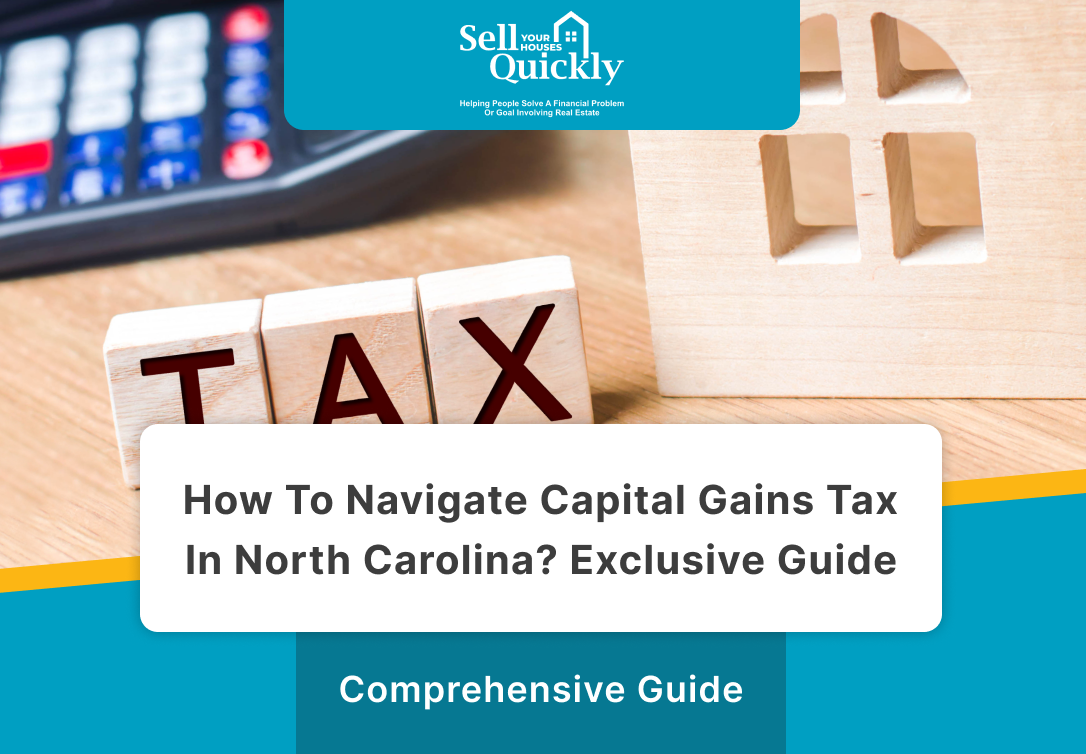
After 7 to 10 years of ownership, your total rate of property value might reach 50%. It is certain that you have some good capital regardless of whether you have just been the owner of the real estate for a period of 3 to 4 years. However, the Internal Revenue Service can come along and charge hefty amounts of capital gains tax in North Carolina when you want to sell out on your greatest financial asset. Real estate sale capital gains tax is due once you sell your house. A capital investment selling tax, or capital gains tax, may take away as much as 20% of your earnings. To help you keep a more huge portion of the money you receive from selling your house, a skilled-performing real estate agent and an expert tax specialist walk through the specifics of capital gains tax in the following article.
After home sale deal, real estate shareholders need to pay the taxes known as capital gains taxes. Like with generated profits taxes, real estate financiers owe duties on the gains they make from selling real estate homes or property. Income is the factor on which the Internal Revenue Service determines capital gains. Usually, this involves submitting taxes on the variance between the amount you spend and the amount you earn when you sell the asset.
Whenever you close the deal of an asset, the Internal Revenue Service demands that you pay capital gains tax NC. Sellers must pay capital gains to the United States government if:
To determine your annual taxable gains, subtract losses on investments from your taxable income. The computation gets slightly trickier if you have experienced capital earnings and liabilities on your short- and long-term monetary investments. Separate short-term and long-term financial gains and expenditures before anything else, placing them in different piles. All short-term earnings must be considered to get an overall short-term benefit. The immediate short-term expenditures are then added up. Long-term earnings and expenses have been calculated. Moreover, the long-term financial advantages and disadvantages are handled identically.
For an efficient way to learn about capital gains tax NC on house sales, consult Sell Your Houses Quickly. After thoroughly reviewing your assets and business operations, they create rules corresponding to state legislation to minimize or eliminate risks. Also, sell your houses quickly have a legal staff that provides information on every action to avoid paying capital gains tax in North Carolina. Additionally, they have knowledgeable real estate and legal staff that work for you to sell your home while negotiating the tricky parts of this tax. You can contact them by email or through websites to safeguard and maximize your financial benefits.
The tax rate on ordinary earnings is lower than that on capital gains. As a result, the annual income from assets will be deducted from the person’s taxable income. As a result, everyone involved in real estate or investing must know about capital gains tax in North Carolina. You can reduce the tax rate by putting these techniques into practice. Additionally, getting professional guidance can help you navigate the procedure and increase the accessibility and profitability of selling real estate. Gaining profit and successfully navigating capital gains tax also depends on expert consultation and preparation done after learning tax rates.
When you sell a property, you often have to deal with capital gains tax. It might become entirely payable on the tax filing for the following year. The Internal Revenue Service may occasionally demand approximated contributions for taxes on quarterly time limits.
The rate of capital gains taxes ranges from 0% to 37%. Long-term gains have a reduced median capital gains percentage than the counterpart. Buying, selling, and making money off a property you have held for twelve months or shorter is considered a short-term capital gain.
Making a profit on a share you have held for over one year is known as a capital gain that has accumulated over time. You might consequently be able to keep the income by delaying the sale of your real estate investment.
Professional real estate experts and legal attorneys can provide guidance on minimizing capital gains tax. Sell Your Houses Quickly is also a reliable option, offering professional assistance to streamline the selling process and navigate capital gains tax efficiently.
When consulting Sell Your Houses Quickly, you will obtain masterful advice. Their talented realtor group will guide you through the complexity of capital gains tax to protect your capital and improve your earnings.